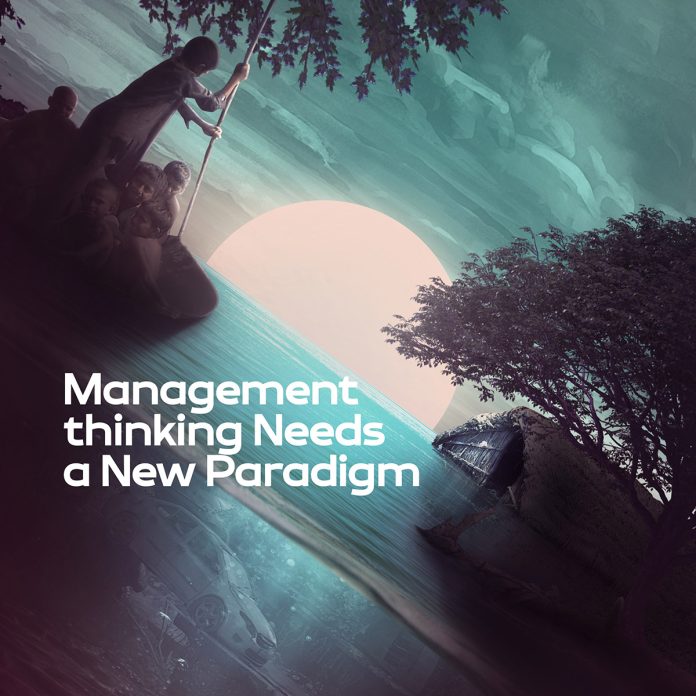The recent megafloods in Pakistan were yet another testimony that the ‘Climate Crisis’ is the biggest challenge of our time that is threatening the very existence of the human race on planet Earth. The changes to Earth’s ecosystems, caused by human interventions, are so formidable that scientists have suggested that we may have entered into a new geological epoch, ‘Anthropocene- the Age of Humans.’
Businesses have to play the leading role in tackling the climate crises that many believe have been caused to a larger extent, by their reckless use of natural resources to enhance profits.
We cannot change the way our organization are managed until we bring about a drastic change in management thinking. There is a need to shift the focus of business leaders from short-term business issues and demands to long-term thinking that incorporates the interest of a wide range of stakeholders that also includes the coming generations. What is required is to prepare future business leaders who take business decisions while considering the impact on society and the environment in the long term.
As quoted in a recent article in Time magazine, Tima Bansal, a professor at Ivey Business School in London, Ontario, has said, “We have a crisis on our hands, and business schools need to act. MBA programs can no longer justify teaching future business leaders to maximize profits at the expense of the planet”.
There is a need for a paradigm shift in business education where the centrality of enhancing shareholders’ wealth, as the sole purpose of business, gives way to the concept where ecology takes precedence over society and society takes precedence over business. We cannot place business, society and ecology on par with each other. Can we survive without oxygen? The drastic reality has to be ingrained in the minds of every business student that the protection of ecosystems is vital for the survival of the society in which businesses operate.
The students also need to come out of the compartmentalized thinking that makes them only domain-specific thinkers and collaborators such as marketing, HR, and Finance of SCM. What is required is to develop systemic thinking that enables students to see the interconnectedness of business, society and the environment to deal with complex societal and environmental challenges that have no simplistic solution.
In Pakistani business schools, the courses of business ethics and CSR deal with the issues of sustainability, but there is a need to incorporate the concept of sustainability in every course of the business curriculum.
At SZABIST, we have designed and introduced an MBA elective in Corporate Sustainability to start a discourse on the importance of the role of businesses in mitigating social and environmental problems. The course’s major thrust was on inducing students to think beyond profits and become an agent of change as business leaders for the welfare of society and the protection of the environment. The notion of ‘Weak Sustainability’, which considers no essential difference between natural capital and manufactured capital, is discussed in comparison with ‘Strong Sustainability’, which argues for the limitation of substitutability of natural capital with man-made capital and for the preservation of critical natural resources. Successful sustainability practices of companies were shared with the caveat that doing less harm to the environment by reducing carbon emissions is not the same as having a net positive impact on the environment which should be the aim of organizations to reverse the negative impact of carbon emissions on the environment. While discussing corporate sustainability reporting with students, it was shared that the production of sustainability reports should not become an end itself, and organizations must strive to create a real positive impact on society and the environment. As the statistics show that the number of companies publishing sustainability reports has increased from 11 companies in 1999 to 4,347 companies in 2016, but surprisingly, during the same time period, the percentage of carbon emissions has been on the rise, from about 24.7 billion tons to almost 35.8 billion tons.
What is required from academia is to incorporate the concepts of sustainability in every course of business curriculum and include the courses of natural sciences in business education so that our future leaders are well aware of the symbiotic relationship among business, society and ecology.
The message to the present and future business leaders is to reconnect with nature and cherish the only planet that we have to live on.
